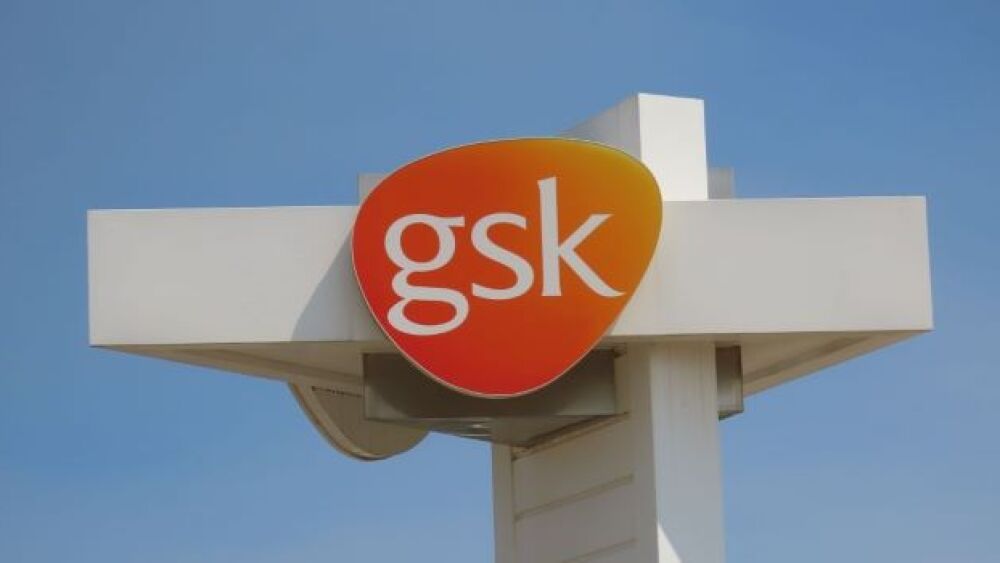The company’s pipeline was strengthened in the second quarter with three strategic collaborations in immuno-oncology, immuno-neurology, and HIV.
Cristina Arias/Cover/Getty Images
One month after GlaxoSmithKline outlined its plans for the company’s future following a planned split between its pharmaceuticals and consumer health businesses, the company posted second quarterly sales of £8.1 (about $11.2) billion.
Chief Executive Officer Emma Walmsley, who has come under fire from some investors over her guidance of the company, said GSK continues to bolster its pharmaceutical pipeline in preparation for the eventual company split. The company’s pipeline was strengthened in the second quarter with three strategic collaborations in immuno-oncology, immuno-neurology, and HIV. During the quarter, GSK struck deals with iTeos, Alector and Halozyme.
In June, GSK and Alector forged a deal to develop monoclonal antibody candidates aimed at a range of neurodegenerative diseases. Two of Alector’s antibody candidates, AL001 and AL101, are seen as potential first-in-class medications aimed at various neurodegenerative disorders, including frontotemporal dementia, amyotrophic lateral sclerosis, Parkinson’s disease, and Alzheimer’s disease. The antibodies are designed to elevate levels of progranulin (PGRN), a key regulator of immune activity in the brain.
GSK and Belgium-based iTeos are co-developing iTeos’ Phase II drug candidate EOS-448, an anti-TIGIT IgG1 monoclonal antibody. The asset binds to TIGIT, plus, it is designed to block interaction with specific ligands, including CD155 and CD112. Additionally, it can attach to CD226 and activate an immune response of T cells and Natural Killer cells.
The Halozyme deal, which was struck by ViiV Healthcare, an HIV-focused company that is majority-owned by GSK, focuses on that company’s ENHANZE drug delivery technology to develop new drugs that can treat and prevent HIV. Also, this quarter, ViiV announced the completion of the rolling submission of its New Drug Application for long-acting cabotegravir for the prevention of HIV.
In addition to those announcements this quarter, GSK also posted positive Phase III results for daprodustat, a potentially transformative medicine for anemia due to chronic kidney disease.
While those were positives, GSK did see some negatives during the quarter. Specifically, the company killed a study assessing its PARP inhibitor, Zejula. The company noted that it terminated the MOONSTONE study evaluating Zejula (niraparib) and the monoclonal antibody Jemperli (dostarlimab) as a potential treatment for ovarian cancer.
Following a pre-planned analysis, the company halted the study and suggested the combination therapy would “not meet the high bar set for this single-arm ORR study.” Zejula has been a critical lynchpin in GSK’s oncology program since it acquired the drug from Tesaro in 2018 for $5.1 billion. The cancer treatment generated £98 million (about $135 million) for the quarter.
GSK also said its Phase I ENTRÉE-Lung substudy 1 investigating feladilimab, an investigational inducible T cell co-stimulatory (ICOS) agonist, plus docetaxel compared to docetaxel alone. The combination did not meet its primary endpoint at the interim analysis. The feladilimab failure followed another let down with the ICOS agonist in April, when the company halted multiple studies assessing the drug candidate.
As GSK moves closer to its 2022 demerger, the company appears to be on firm footing as it proceeds. Last month, Walmsley outlined the projected de-merger of the two GSK businesses, which includes a prediction of the standalone pharmaceutical business (dubbed New GSK) having a projected revenue of about $46 billion by 2031, as well as consistent growth of more than 10% operating profit over the next five years.
The consumer health business, a joint venture with Pfizer, will have a combined portfolio of multiple household projects, including Advil, Tums, Sensodyne toothpaste, Excedrin, and Nicorette gum. Last year, the consumer products that will make up the core of the business generated sales of about £10 billion (about $13.9 billion). Earlier this week, Brian McNamara was tapped to helm the new consumer health business.
“Our clear priority is to focus on execution, unlocking the value of Consumer Healthcare and delivering the step-change in growth and performance we now see for GSK,” Walmsley said in a statement.





